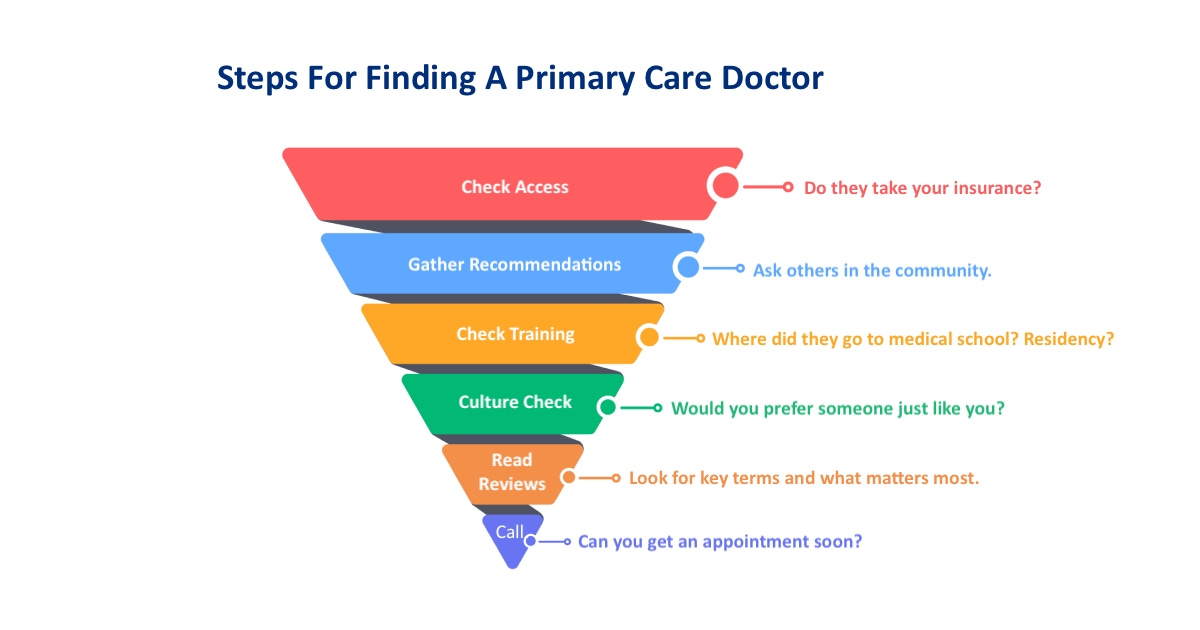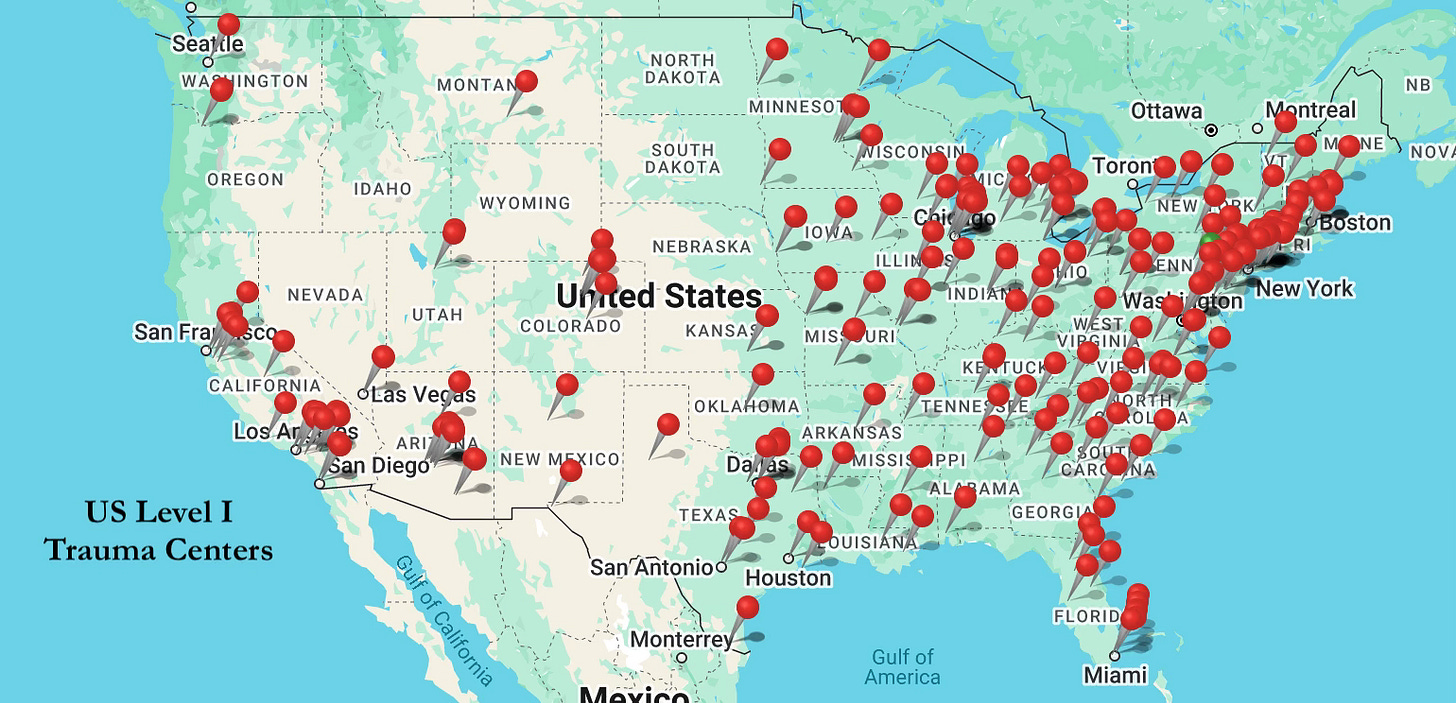Chapter 6: Hunting The Elusive Top Specialist and Surgeon
Finding a top specialist is easier than getting in to see one.
The world has changed greatly since my son saw over a dozen specialists searching for an answer to his puzzling problems. He had four neurologists over those eight years. In the beginning of the 21st century, we often only had to wait two weeks to a month to see a specialist.
No matter where you live, that wait time has grown dramatically. I recently learned I had to wait over six months to see one specialist. I kept that appointment on the books but found an alternative a bit further away with an earlier opening. I did so in case I needed a second opinion. Of course, keeping that appointment jams up the specialist's calendar for other patients. I should care but in today's American healthcare, access is valuable and hard to give up.
There is one highly undesirable exception to long wait times; if you are in the emergency department (ED) or have been admitted to a hospital. Then, the hospital often assigns you to attending specialists, meaning experts who work for the hospital. In that scenario, you have little to no choice unless you need an elective surgery. You have no control over who holds the scalpel in an emergency surgery. So, let's assume you're an ambulatory patient, meaning you are NOT in the hospital.
Chapter 5 covered six steps to help you shop for a primary care doctor. Keep that link handy because you'll want to repeat many of those steps for the even more challenging task of finding the best specialist or surgeon. Quick visual reminder; here are the Steps to Finding a Primary Care Doctor.
Whether you're seeking a specialist or a surgeon, odds are your primary care doctor (PCP) will start the process. Let's say you have digestive issues that weren't resolved with an over-the-counter antacid. Your PCP will likely send you to a gastroenterologist (GI) for a workup. They may give you the name of one or several GIs. It's your job to check which of them take your insurance or Medicare/Medicaid. Then check their education and training, reviews, etc. The same steps go for a cardiologist, neurologist, rheumatologist, and all the other 37 specialties and 89 sub-specialties.
Expand the List
Watch out! If your PCP only refers you to a specialty group that is part of her healthcare organization, ask if she's required to limit her referrals to her colleagues. Many are. Push –– gently –– for more names. Ask, "Who would you recommend your parent or sibling see?" Or ask, "Who else is highly respected?"
You can also follow the steps in Chapter 5 –– especially step 2 –– to Build a List. Don't forget to ask every medical professional you know who they use, including your dentist and nurse practitioner, plus every family member, close friend, heck, even Facebook community groups and disease-specific groups are commonly used to find a specialist.
Your health insurance website will have a list of in-network specialists but those lists are often out-of-date or inaccurate. Check there but also call anyone well recommended to see if they'll take your insurance. If you can, stay with specialists who take your insurance to save thousands of dollars.
In rare instances, you can get permission to use an out-of-network doctor and not go bankrupt. There was a pediatric neurologist with a unique subspecialty we wanted for our son. He was not in-network and was extremely expensive out-of-network. So, I made an appointment a few months in advance and wrote a series of letters to the insurance company explaining why their current list of pediatric neurologists wouldn't work for us. The pediatrician also wrote to them and the specialist provided us with his CV as proof of his expertise. Two months and four rounds of letters later, we got permission to hire him and pay only our normal co-pay. It wasn't the insurance company's fault that the highly desired neurologist would also misdiagnose and maltreat our son.
Are They Board Certified?
Before you research the specialists' training, shorten your list by ensuring they're board-certified in their specialty. Here's a list of every board-certified specialty and sub-specialty from the American Board of Medical Specialties (ABMS), the nonprofit that tests and certifies specialists in the U.S.A. Specialists don't have to be board-certified but I wouldn't go to one who isn't. Why put my health in the hands of someone who hasn't completed the rigorous initial testing or kept their education up-to-date to maintain their certification?
Start here at Certification Matters, the patient-facing website run by ABMS. There you can double-check if your surgeon or specialist is currently board-certified. Even primary care doctors, like internists and pediatricians, can be board-certified. Not all categories are included; oral surgeons, dentists, podiatrists and chiropractors are not ABMS board-certified specialties. You can search up to 15 names every 24 hours but odds are you won't have that many names to check. If your doctor is on the ABMS list, you can click on their profile and learn when they were first certified, most recently certified and if they're maintaining their education as required.
Pro Tip 1: Check Surgeons' and Specialists' Medical Training For This Detail
I asked my cardiologist, David Engel MD of Columbia Doctors, for his suggestions. After acknowledging that doctors had easier access to information on specialists, he said, "Make certain their residency and fellowships were at big medical centers." He said the key is a high level of exposure to a broad swath of patients, surgeries and resources in residency and fellowships. Visit Chapter 5 for how to find this information.
Why is this important? In medical training, size matters. Ideally, your specialist or surgeon is well-versed in your medical needs. You don't want them learning on your body.
To become a general surgeon, you need to complete 850 surgeries during your fellowship. The best specialty surgeons should also perform hundreds of relevant surgeries every year. For example, I have an orthopedic surgeon I refer to as my knee guy. His training included countless knee surgeries on a large diverse population of patients of all ages, genders, and issues from injured high school athletes to weekend warrior seniors whose arthritic knees have worn down to the bone.
Similarly, to become the best nonsurgical specialist, like a neurologist, cardiologist, dermatologist or rheumatologist, the doctor needs to train where they'll get to see and treat thousands of patients relevant to their specialty. In dermatology, lack of experience with darker skin can lead to misdiagnosis for Black and Brown patients. Dermatologists trained in larger medical centers have experience with all melanin levels.
How do you know if a specialist trained at a big medical center? Dr. Engel defined big medical centers as busy academic medical centers for both surgical and nonsurgical specialists; and Level I Trauma Centers for surgeons.
This is a list of the 25 largest academic medical centers (AMC). Here are the top teaching hospitals. There are approximately 1,700 teaching hospitals but just 220-300 are considered major teaching hospitals, such as university hospitals or academic medical centers.
There are 2,294 trauma centers in the U.S., but only 254 are Level I. A Level I Trauma Center is "capable of providing total care for every aspect of injury – from prevention through rehabilitation" according to the American Trauma Society. Five states have no Level I Trauma Centers, just Levels II through V: Alaska, Idaho, Montana, South Dakota, and Wyoming. The various levels are often defined on a state-by-state basis.
It's important to note that a trauma system might be Level I for adults and Level II for pediatrics. Or vice versa.
Don't Forget to Check For Malpractice History
As discussed in Chapter 5, check the Doc Info website to see if any disciplinary action was taken against a specialist or surgeon you are considering. However, state medical boards are notorious for giving doctors the benefit of the doubt. Most malpractice cases are settled quietly never reaching the state medical board. While the results may be hidden, the initial lawsuit is public. It's worth using your favorite search engine to seek the doctor's full name (including middle initial if you have it) in quotes and the phrase "malpractice lawsuit." Don't use the honorific Dr.; use MD or DO instead. There are so many people with similar names. For example, on Doc Info just in Connecticut, Smith with no first name brought up the "Top 30" names in alphabetical order. I don't know how many Smiths are MDs or DOs in CT.
Pro Tips 2 + 3: To Get An Earlier Appointment
Unlike primary care doctors, specialists and surgeons never close their patient panel to new patients. But you may wait months to be seen. Always ask to be put on the waiting list. Call weekly on Friday afternoons or Monday mornings to remind the reservationist you need an appointment. Also, let your PCP's office know you're having trouble getting a timely appointment. Ask them who can help you get an earlier time slot.
Please let us know –– in chat or in comments below –– what worked well for you or any resources you've used that we missed.
Next up - Chapter 7: Top Five Things To Do Before You See Your Doctor.
© Helene M. Epstein, 2025









Excellent, informative article .
Great visuals, but far more important, relevant, crucial information. Thank you.